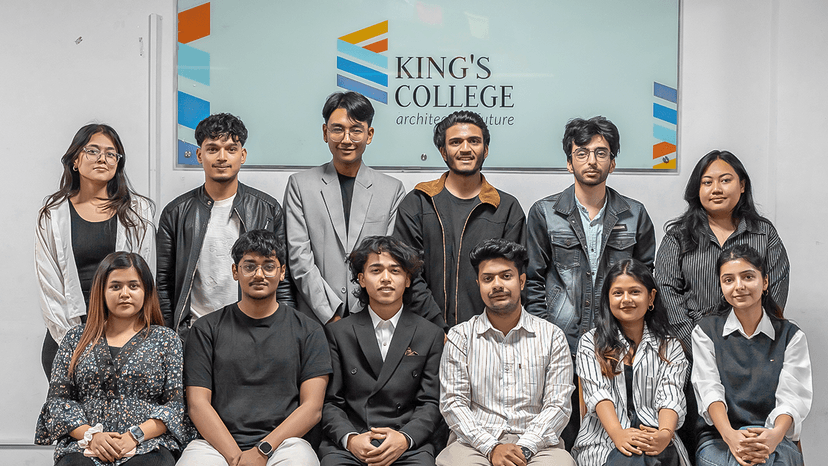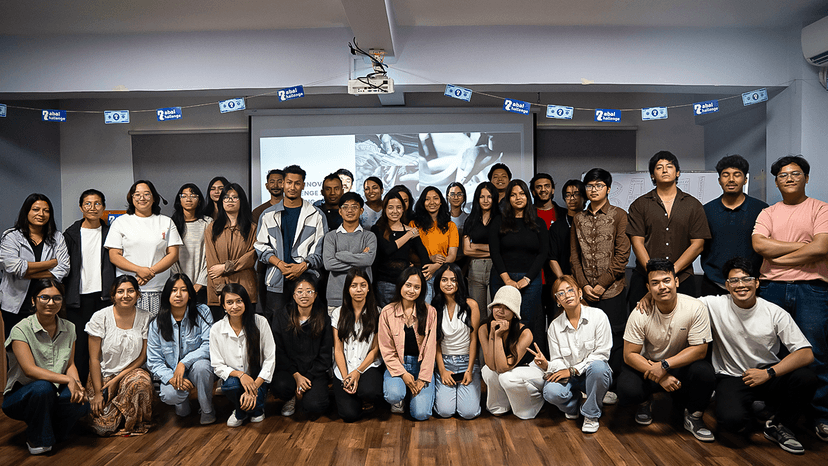My Learnings and Reflectings about Grievance Handling at OSRL
I joined the Office of Safe and Respectable Learning (OSRL) department as the Program Coordinator in 2023. Office of Safe and Respectable Learning (OSRL) was established in 2020as an independent department within King’s College, dedicated to promoting diversity, equity,inclusion, and justice while ensuring the safety and respect of students, staff, faculty, and community members both within and beyond King’s College. Through our research, policy formulation, education, and grievance-handling initiatives, we strive to create a campus environment where everyone feels valued and protected.
Poster used by OSRL to make the grievance forms accessible.
Although I haven’t been directly involved in managing these grievances, I’ve collaborated closely with Dr Bhawana Shrestha, our advisor for grievance handling, to document our framework and processes. When I heard about the Centre for Restoration (TCR) Foundation’s lecture series titled “Addressing Sexual Violence at India’s College Campuses,” I saw a valuable opportunity to deepen my understanding of grievance handling in a different context, learn to mirror it with the work we do at OSRL and identify shortcomings and actionable insights.As I sat through each session in this six-session lecture series, I found myself engaging with the stark realities of Gender-Based Violence (GBV) and how they are tackled. I am also grateful tothe TCR team for accommodating students who were able to catch up on any missed sessions through video recordings and interactive Q&A sessions with our lecturer, Yukti.
A screenshot of the session on the POSH Act
We examined three major research studies on GBV in Indian colleges: the 1996 study at Delhi University, the 2014 study at Ashoka University, and the ongoing research by the TCR Foundation at St. Stephen’s College. By comparing these studies and considering the grievances highlighted by the #MeToo movement, I gained a comprehensive understanding of how discussions and handling of GBV in Indian colleges have evolved. The focus has shifted from addressing issues like eve-teasing, highlighted in the 1996 DU survey, to adopting more precautionary measures like increasing segregation based on gender and enforcing stricter “decency” and “disciplinary laws” rather than addressing GBV issues. We also talked about how compliance with the patriarchal and capitalist system affects the progress to be made in this field. I learnt that each college campus in India is mandated to establish an Internal Complaints Committee (ICC) to tackle any issues related to sexual harassment. The ICC provides services such as grievance redressal, counselling, consultation, support, sensitization and awareness of sexual harassment. Knowing that no such mandate exists in Nepali colleges was disheartening.
Example of the poster by ICC at Delhi University
However, as the discussion unfolded, I also learned about the limitations of the Internal Complaints Committee (ICC). For instance, due to the lack of trauma-informed approaches while handling grievances, I felt unsettled knowing that they ended up perpetuating the very issues they were established to address. This has also led to a distrust towards the ICC, with students preferring to handle grievances outside the committee. It was helpful to learn that there are many online and offline courses and communities where folks can learn about trauma-informed approaches, practice them, and if needed, be certified for them. One concept that was a revelation to me was the term ‘survivor-victim,’ coined by Mary B. Koss. Previously, individuals were victims before beginning their healing journey through grievance handling or other means and became survivors upon completing it. According to the TCR Foundation, the term ‘survivor-victim’ retains the empowerment conveyed by ‘survivor’ while maintaining the outrage associated with ‘victim.’ This perspective aligns with my current understanding of the issue. The idea that activism can be a form of self-care resonated deeply with me; it’s a reminder that in the fight against GBV, our well-being matters too.
After attending the TCR Foundation’s lecture series on addressing sexual violence at India’s college campuses, I found myself reflecting deeply on how similar issues are approached at King’s College. The discussions brought to light the pervasive normalization of gender-based violence (GBV) through societal and institutional structures, which prompted me to consider how we might be unconsciously perpetuating similar norms at the Office of Safe and Respectable Learning (OSRL). For instance, while we’ve implemented grievance-handling processes and awareness programs, I began questioning whether these efforts truly address the underlying power dynamics or merely provide surface-level solutions. For example, our grievance handling often focuses on resolving individual cases without fully addressing the broader cultural factors that allow GBV to persist.
The lecture series challenged me to rethink our practices at OSRL, particularly in how we approach grievance handling and education on GBV. Concepts like ‘survivor-victim’ and the limitations of Internal Complaints Committees (ICCs) offered valuable insights. For example, our current grievance process focuses on resolving cases, but we might need to incorporate more trauma-informed approaches that acknowledge the ongoing impact of victimization. Additionally, our educational initiatives could benefit from a deeper exploration of power structures and how they contribute to the normalization of violence, ensuring that our programs don’t just inform but also empower students to challenge these norms. Maybe, we could evaluate whether our policies and procedures unintentionally create barriers for survivors seeking justice, such as requiring excessive documentation or imposing strict timelines that don't account for the emotional toll of reporting GBV.
Ultimately, the lecture series reinforced the idea of open dialogue and advocacy, comprehensive support systems, and resilience and community. While eliminating gender-based violence in the school and college system isn’t a realistic goal given the patriarchal system that exists within and beyond the school and college system, the lecture series highlighted continuous learning, collaboration, and adaptation are required to deal with the cases of GBV while also targeting the mindset that breeds GBV. It’s not just about creating and implementing a grievance-handling policy, it is about empowering the community and creating a safe and respectable environment within and beyond it.
Other Posts



